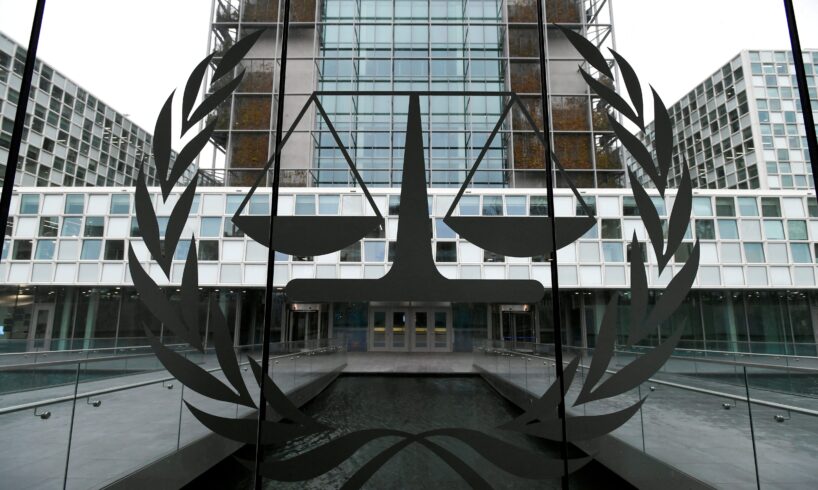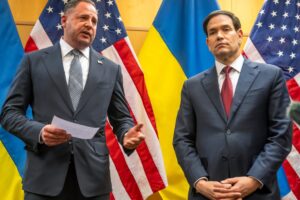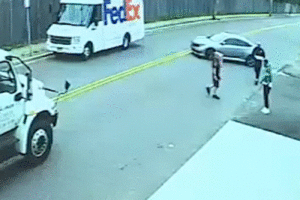
Open this photo in gallery:
The International Criminal Court building in The Hague, the Netherlands, in 2019. U.S. Secretary of State Marco Rubio has called the court a ‘national security threat.’Piroschka Van De Wouw/Reuters
The United States has issued new sanctions against senior officials with the International Criminal Court, including against a Canadian jurist, threatening to increase friction between Ottawa and Washington as trade talks continue.
The U.S. sanctioned two of the court’s deputy prosecutors as well as two judges, a French jurist and Kimberly Prost, a University of Manitoba graduate who spent nearly two decades with Justice Canada before moving overseas.
U.S. Secretary of State Marco Rubio called the court “a national security threat that has been an instrument for lawfare against the United States and our close ally Israel.” The ICC has 125 member countries, including Canada – but not the U.S. or Israel.
Opinion: Canada must come off the sidelines of international justice
Nearly 150 Canadians held in ICE custody this year, including two toddlers, data show
Mr. Rubio faulted Ms. Prost for ruling in favour of an investigation into U.S. personnel in Afghanistan. She was one of five judges who decided unanimously in 2020 to authorize an investigation into war crimes committed in Afghanistan by the Taliban, Afghan forces and members of the U.S. military and Central Intelligence Agency, which operated secret detention facilities.
Canada has been a leading supporter of The Hague-based court, with Canadians occupying pivotal roles in the negotiations toward its establishment in 2002. Ottawa has also provided considerable financial backing. Ms. Prost is the second Canadian to serve as a judge on the ICC.
The Donald Trump administration has criticized the court for overstepping its bounds by issuing a war crimes arrest warrant for Israeli President Benjamin Netanyahu and investigating U.S. military conduct.
The new U.S. measures, which build on sanctions against four ICC judges in June, raise a raft of potential issues for those named as well as institutional issues for the court in dealings with financial institutions, companies and groups with American ties.
Mr. Trump also directed sanctions toward the court in his first term, but the scope of his actions this year goes well beyond what he has done previously, by sanctioning judges in addition to prosecutors.
President Donald Trump’s administration imposed sanctions on two judges and two prosecutors at the International Criminal Court, including a Canadian jurist.
Reuters
“This is incredibly disturbing,” said Sara Ochs, a legal scholar at Elon University who has written on the U.S. relationship with the ICC.
Those judges “were merely following their judicial obligations and authorizing investigations pursuant to guidelines set forth in the Court’s governing legislation,” she said.
“To me, this clearly shows the administration’s position on international criminal justice, which is that the powerful should be able to avoid accountability for even the worst crimes.”
It also raises a new set of complications for Canadian leadership, which is in the midst of trade talks with a Trump administration that has shown a willingness to respond with economic punishment to non-trade issues.
Prime Minister Mark Carney “is going to have to be pretty careful here in how he responds,” said John Boscariol, an international trade lawyer with McCarthy Tétrault. Any reaction will need to be weighed against how it “might impact ongoing negotiations for a trade deal.”
The International Criminal Court is a permanent judicial body tasked with investigating and prosecuting some of humanity’s worst conduct, but its lofty ideals have often clashed with the interests of individual countries, including those who are signatories to the Rome Statute that established the court.
Earlier this year, Hungary said it would withdraw from the court, after its Prime Minister, Viktor Orban, declared that the arrest warrant against Mr. Netanyahu would have “no effect” on Hungarian soil. Last year, too, Mongolia ignored an ICC arrest warrant for Russian President Vladimir Putin stemming from the invasion of Ukraine.
Earlier this year, Italy did the same, freeing a Libyan wanted for war crimes.
“States’ compliance with the International Criminal Court is poor at best. This is not only the United States,” said Mark Drumbl, director of the Transnational Law Institute at Washington and Lee University.
Those working with the ICC, meanwhile, should not have been surprised that powerful countries would respond to the court’s actions, said Prof. Drumbl, who is Canadian.
“You’re a high-profile institution targeting national leaders and accusing them of war crimes. You don’t think this is going to have blowback?” he said.
“To be shocked that this happened strikes me as a little bit of pearl-clutching.”
Mr. Rubio, on Wednesday urged other countries to oppose the work of the court, which he called a “bankrupt institution.” U.S. allies should keep in mind that for many, their “freedom was purchased at the price of great American sacrifices,” he said.
France, however, declared its “unwavering support” for the ICC, while the court itself decried what it called an affront to “the rules-based international order and, above all, millions of innocent victims across the world.”
Neither Ms. Prost nor Global Affairs Canada responded to requests for comment.
Canada already has in place the Foreign Extraterritorial Measures Act which allows the Attorney-General, in tandem with the Foreign Minister, to prohibit people in Canada from abiding by certain foreign sanctions. That law has been most commonly used with companies connected to Cuba, which has spent decades under a U.S. economic embargo but remains a Canadian trading partner.
The ICC sanctions “should be interpreted as a really hostile act” to all countries that support the court, said Jens Iverson, an assistant professor in international legal studies at Leiden University who knows Ms. Prost. They should be seen as the U.S. “abusing the power it happens to have because in the past it’s been viewed as a rule of law country,” he said.
“The question is what friends of the court are going to do,” he added, and whether those countries “have other priorities than defending the rule of law, the court and their own nationals.”





